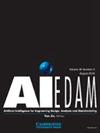智能平台实验周期(SPEC):设计、分析和验证数字平台的过程
IF 2.3
3区 工程技术
Q3 COMPUTER SCIENCE, ARTIFICIAL INTELLIGENCE
Ai Edam-Artificial Intelligence for Engineering Design Analysis and Manufacturing
Pub Date : 2021-05-01
DOI:10.1017/S0890060421000081
引用次数: 6
摘要
数字平台商业模式正在颠覆传统的业务流程,揭示出一种新的价值创造方式。当前业务模型的验证流程旨在评估管道业务模型。他们无法把握数字平台的逻辑,这些平台越来越多地整合人工智能(AI)以确保成功。本研究遵循设计科学研究方法,为数字平台商业模式的早期市场验证开发了一个新的验证过程。所设计的过程,智能平台实验周期(SPEC),是通过结合业务实验的四步迭代周期,客户开发过程和精益创业方法的构建-测量-学习反馈循环,并用数字平台的知识丰富它而创建的。它包括五个迭代步骤,向创业公司展示如何设计他们的平台商业模式和相应的实验,以及如何运行、测量、分析和从结果和结果中学习。为了评估其有效性、适用性和有效性,我们将SPEC应用于德国初创公司GassiAlarm,这是一个服务市场商业模式。SPEC的应用揭示了定价策略的缺点,并强调了他们目前的商业模式在多大程度上是成功的。SPEC降低了构建市场认为多余的产品或服务的风险,并提供了对其成功率的洞察。需要更多的SPEC应用程序来进一步验证其健壮性,并将其扩展到其他类型的数字平台业务模型,以改进泛化。本文章由计算机程序翻译,如有差异,请以英文原文为准。
Smart platform experiment cycle (SPEC): a process to design, analyze, and validate digital platforms
Abstract Digital platform business models are disrupting traditional business processes and reveal a new way of creating value. Current validation processes for business models are designed to assess pipeline business models. They cannot grasp the logic of digital platforms, which increasingly integrate Artificial Intelligence (AI) to ensure success. This study developed a new validation process for early market validation of digital platform business models by following the Design Science Research methodology. The designed process, the Smart Platform Experiment Cycle (SPEC), is created by combining the Four-Step Iterative Cycle of business experiments, the Customer Development Process, and the Build-Measure-Learn feedback loop of the Lean Startup approach and enriching it with the knowledge of digital platforms. It consists of five iterative steps showing the startup how to design their platform business model and corresponding experiments and how to run, measure, analyze, and learn from the outcomes and results. To assess its efficacy, applicability, and validity, SPEC was applied in the German startup GassiAlarm, a service marketplace business model. The application of SPEC revealed shortcomings in the pricing strategy and highlighted to what extent their current business model would be successful. SPEC reduces the risk of building a product or service the market deems redundant and gives insights into its success rate. More applications of the SPEC are needed to validate its robustness further and to extend it to other types of digital platform business models for improved generalization.
求助全文
通过发布文献求助,成功后即可免费获取论文全文。
去求助
来源期刊
CiteScore
4.40
自引率
14.30%
发文量
27
审稿时长
>12 weeks
期刊介绍:
The journal publishes original articles about significant AI theory and applications based on the most up-to-date research in all branches and phases of engineering. Suitable topics include: analysis and evaluation; selection; configuration and design; manufacturing and assembly; and concurrent engineering. Specifically, the journal is interested in the use of AI in planning, design, analysis, simulation, qualitative reasoning, spatial reasoning and graphics, manufacturing, assembly, process planning, scheduling, numerical analysis, optimization, distributed systems, multi-agent applications, cooperation, cognitive modeling, learning and creativity. AI EDAM is also interested in original, major applications of state-of-the-art knowledge-based techniques to important engineering problems.

 求助内容:
求助内容: 应助结果提醒方式:
应助结果提醒方式:


